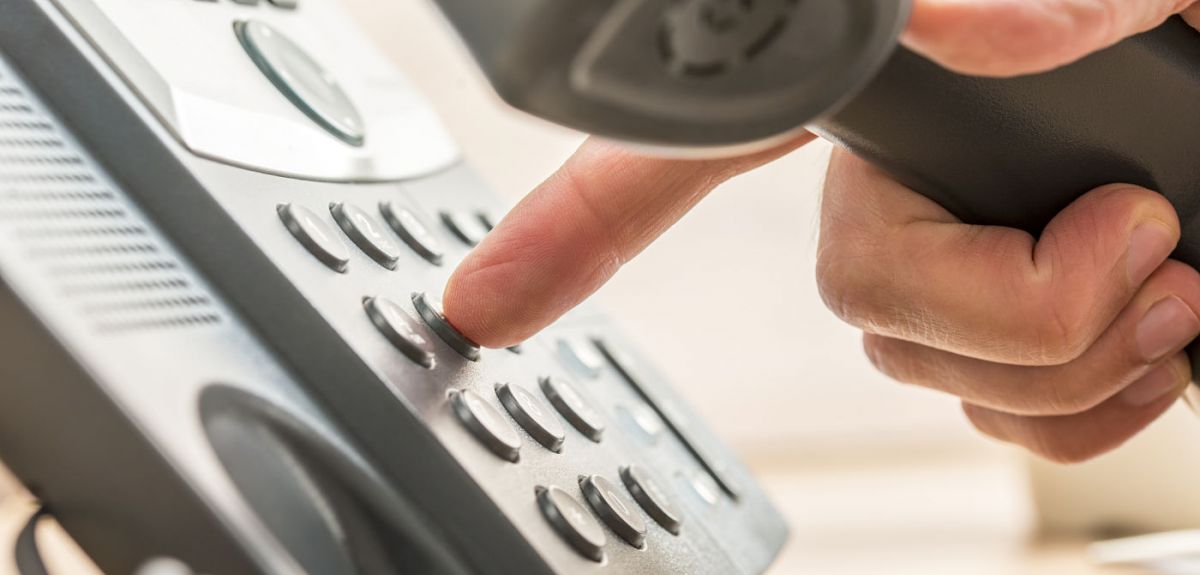
Source: Shutterstock/ Gajus
GP receptionists 'need more training to recognise stroke symptoms'
More can be done to improve the way GP practices deal with patients suffering Stroke symptoms, research has shown. But with few GP receptionists trained to recognise the symptoms of stroke and triage patients appropriately, an Oxford researcher says that it is positive that, when tested, receptionists correctly referred many calls for immediate care.
An article published in the British Journal of General Practice highlights the important role of GP receptionists in directing stroke patients towards timely, emergency care. The RECEPTS study used ‘mystery shopper’ telephone calls from researchers posing as patients with stroke symptoms: around one third of calls were not recognised as emergencies.
The RECEPTS study, conducted by researchers at the Universities of Oxford and Birmingham, suggests more specialist training - as well as clearly defined policies on how to deal with potential emergencies - could help patients with stroke get to hospital quicker. This in turn could save lives and minimise the impact of stroke.
Early diagnosis and treatment in a specialist hospital unit, can improve a patient’s chances of survival and their quality of life post-stroke. National awareness campaigns such as the NHS’s Act FAST initiative are designed to help the public recognise symptoms and call an ambulance but studies show more than 20 per cent call their GP first.
The RECEPTS study was conducted by researchers from the Universities of Birmingham and Oxford as part of the National Institute for Health Research Collaboration for Leadership in Applied Health Research and Care (NIHR CLAHRC) for Birmingham and the Black Country and was funded by the NIHR.
Designed to understand how GP reception staff recognise and respond to patients with stroke symptoms, RECEPTS involved 52 family practices across the West Midlands, using questionnaires, focus groups and ‘mystery shopper’ telephone calls.
Each practice received ten calls from actors mimicking between 1 and 3 symptoms of stroke. The receptionist was not aware the situation was simulated until the end of the call. If taking a call from a suspected Stroke patient, receptionists should ask the caller to dial 999 immediately or immediately transfer the call to a GP.
An ischemic Stroke happens when blood supply to part of the brain is cut off and brain cells are damaged or die. It is important because patients who suffer from a stroke can experience significant and lasting disability if they are not treated by a specialist in hospital immediately.
Study author Dr James Sheppard, a Medical Research Council Research Fellow from the Nuffield Department of Primary Care Health Sciences at the University of Oxford, said: 'Patients suffering from stroke require urgent care in hospital. A delay of just a few hours, caused by calling the GP surgery instead of 999, could have a significant impact on patient outcomes. Unlike call handlers answering 999 calls, few GP receptionists are trained to recognise the symptoms of stroke and triage patients appropriately. We were therefore surprised that such a high number of simulated calls were correctly referred for immediate care. That said, simulated calls containing lesser known symptoms of stroke were often dealt with incorrectly, suggesting that some formal training of receptionists would be valuable.'
RECEPTS findings
- In 69% of simulated calls were judged to be correctly referred for immediate care - receptionists told the caller to contact 999 or transferred the caller directly to the GP.
- Difficult to recognise calls (where symptoms were not obvious) were 85% less likely to be immediately referred than easy to recognise calls.
- Calls with fewer or no symptoms used in the Act FAST campaign -Has their face fallen? Can they raise both arms? Is their speech slurred? - were less likely to be immediately referred than calls with all three FAST symptoms.
- Almost all receptionists (96%) were able to name at least one stroke symptom but 40% reported one or more incorrect symptoms.
 Oxford unmasks the fraudsters behind the forgeries for April Fakes Day 2025
Oxford unmasks the fraudsters behind the forgeries for April Fakes Day 2025
 Expert Comment: Can Europe hold the line of liberal democracies?
Expert Comment: Can Europe hold the line of liberal democracies?
 Oxford launches first human aerosol TB challenge trial
Oxford launches first human aerosol TB challenge trial
 Rees Centre report reveals challenges faced by Black and Asian kinship carers
Rees Centre report reveals challenges faced by Black and Asian kinship carers